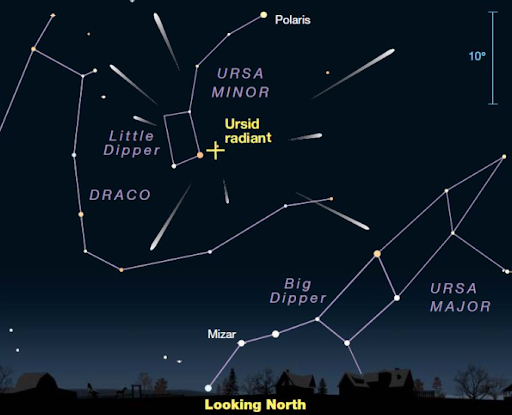Meteor Showers

__________________________________________
METEOR SHOWERS by MarineBiologie
__________________________________________
What is a meteor shower?
A meteor shower is an event where several meteors can be observed as they originate from a certain point in the sky. The meteors enter the earth's atmosphere but very rarely end up on earth.
What notable meteor showers occurred at the end of 2020?
Two well-known meteor showers occurred; the Geminids and Ursids meteor showers.
Geminids meteor shower
The meteors in this meteor shower originate from Gemini's constellation, known for being one of the zodiacs. Many consider this meteor shower to be the best meteor shower of the year, as 60 to 120 meteors can be seen per hour. It annually takes place from December 7-17, although peaking at different times.
The Geminids meteor shower has been known to have occurred for at least the past 200 years and is slowly getting stronger. The meteors themselves are debris left behind from the asteroid 3200 Phaethon and are pulled to Earth because of the planet's gravity. Asteroid 3200 Phaethon orbits the sun every 1.4 years, which is how the meteor shower continues to occur every year.

Ursids meteor shower
Although a minor meteor shower, the Ursids are also quite notable. Comet Tuttle, which was discovered in 1790, leaves behind dust grains, which then gravitate towards Earth. If on Earth, it'll appear as though the meteors are coming from the constellation Ursa Minor. The meteor shower runs annually from December 17-25 and typically produces 5 to 10 meteors each hour.

What other events happened?
December 14th:
A total solar eclipse occurred, with a path of totality passing over parts of South America.
December 21st:
The winter solstice marks the first day of winter for the Northern Hemisphere and the first day of summer for the Southern Hemisphere.
A rare conjunction of Jupiter and Saturn occurred; it last happened in 2000, and the two planets will be so close to each other in the sky that they will seem to be a bright double-planet.
December 30th:
A full moon could be seen.
GLOSSARY
asteroid - a small, rocky body that orbits the sun
comet - a small, icy body that releases gases when near the sun
constellation - a group of visible stars that produce a pattern, typically representing an animal, mythological being, or inanimate object
double planet - (binary planet) a binary system where both objects are of planetary mass*
Gemini - a zodiac constellation in the northern celestial hemisphere
meteors - pieces of space debris that can range from being the size of a speck of dust to a huge boulder
meteor shower - an event where several meteors are observed to radiate or originate from one point in the night sky
solar eclipse - an eclipse where the sun is obscured by the moon, engulfing part of the Earth in a shadow.
*This term is not an official classification recognised by the International Astronomical Union.
Bạn đang đọc truyện trên: AzTruyen.Top